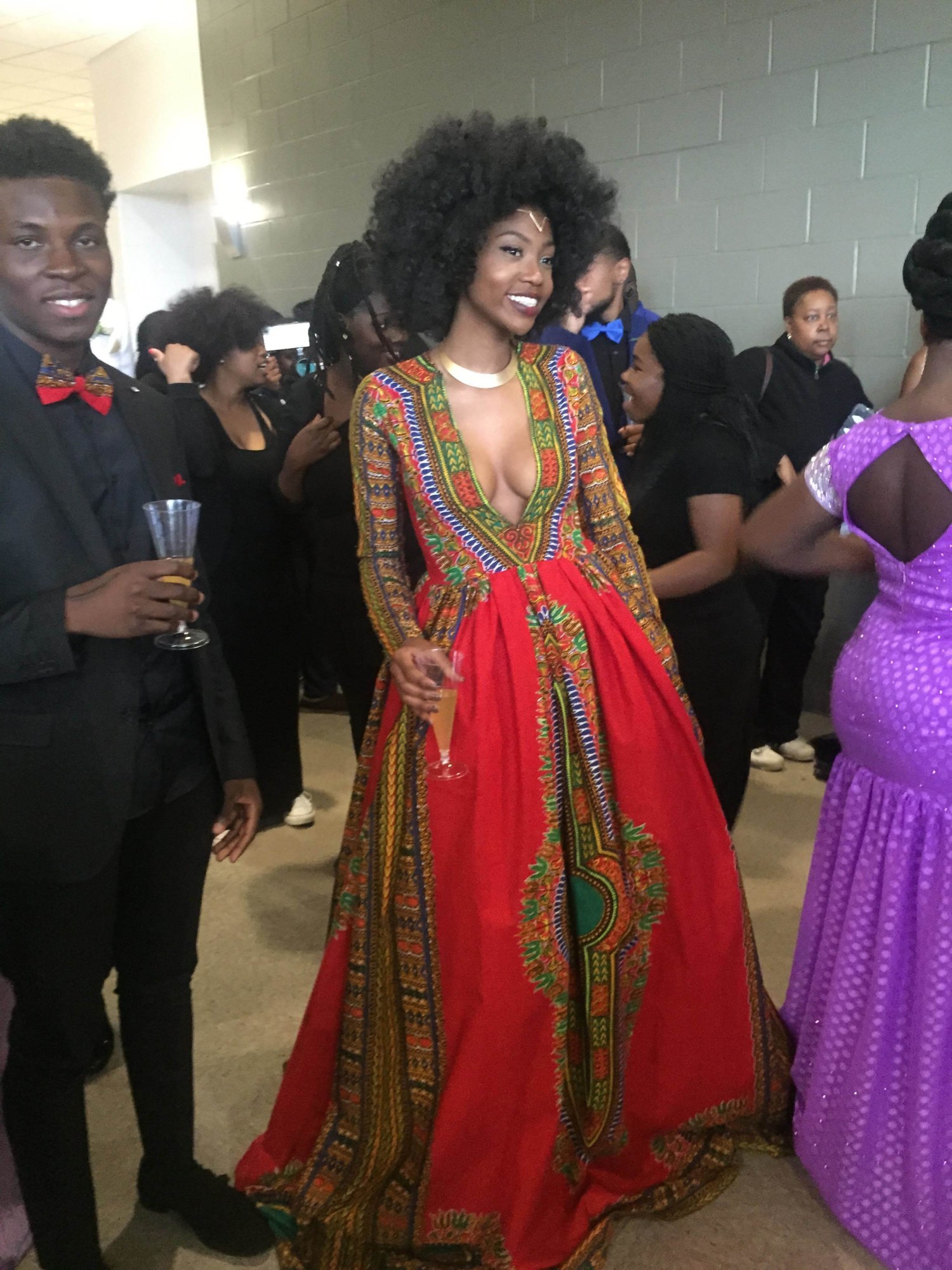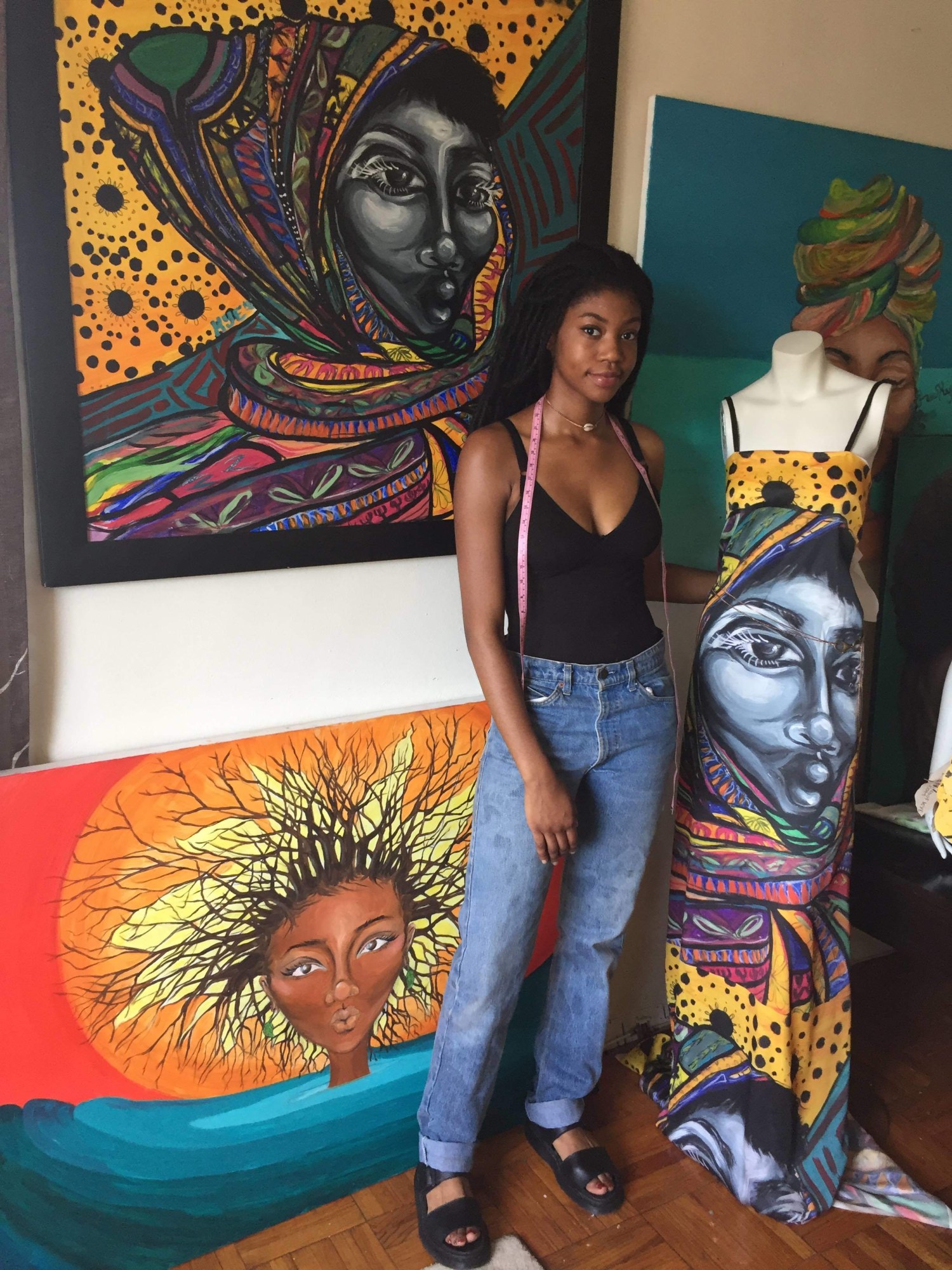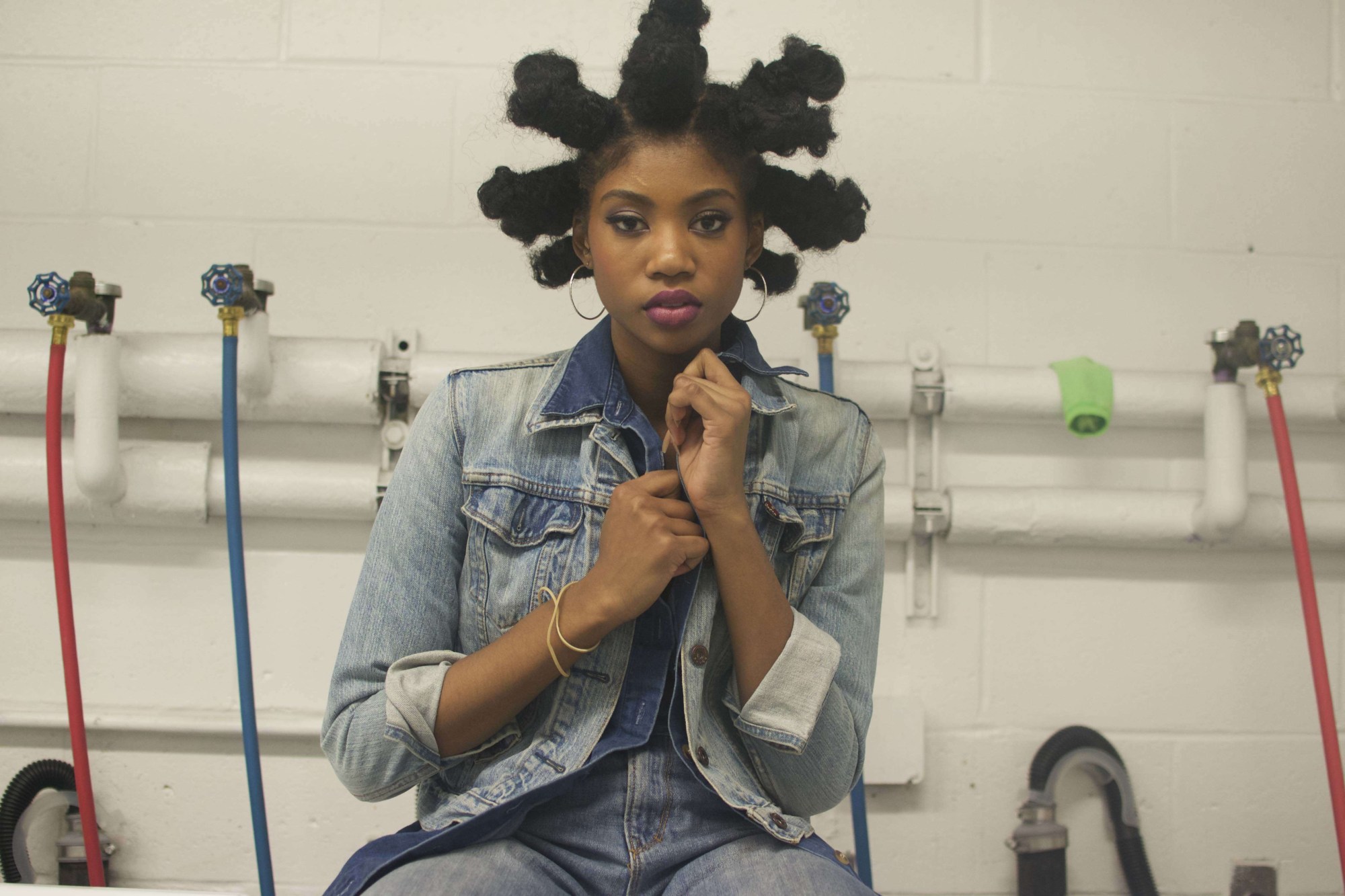Kyemah McEntyre (Mind of Kye to her many Insta-followers) would be the first to concede she has her work cut out for her. At 20, she is best known for her prom dress, a Dashiki-printed, custom-made gown that immediately went viral when she posted a photo of it on Instagram. Within weeks, 3LW rapper and Power actress Naturi Naughton had commissioned her to whip up a dress to wear to the BET Awards in June 2015. Eventually, Melissa Harris-Perry reached out; McEntyre was invited onto the former MSNBC host’s show and dressed her for last month’s Girls Write Now Awards honoring Zadie Smith. And in the meantime, McEntyre’s been featured in a Dove ad, tapped to appear in a spread in Teen Vogue, and cited in The New York Times as the woman whose example has driven scores of her peers to turn to traditional African prints for their own prom dresses. In February 2017, she showed her first collection at New York Fashion Week.

McEntyre insists the shine hasn’t yet worn off, that her success is as unbelievable to her as it was almost exactly two years ago, when she woke up to so many Instagram likes and messages she had to put her phone on airplane mode. Now a sophomore at Parsons in New York, McEntyre has come to realize what Instagram fame can’t bestow—technical skill, patience, a readiness to experiment and sometimes fall flat in private. And so, McEntyre means it; she literally has her work cut out.
“I have three pieces on a mannequin right now,” she explains over the phone. “I’m looking at them as we speak, and, honestly, I can’t believe I sewed these together.”
Until she sketched her prom dress and had a seamstress make it, McEntyre had only ever created on paper. She’d always loved museums—and Old Masters paintings, in particular. But she remembers how invisible they sometimes made her feel, like she didn’t even exist. “If you’re in those paintings, that’s proof that you matter to the world,” McEntyre says. “But I didn’t see a black person there. I didn’t see a Latino person there. I couldn’t find [me], so I felt like I needed to make it.” Still in grade school, McEntyre began drawing black women into the canon. They posed in formal portraits and danced. They wore luxe fabrics, wrapped up like royalty. “I needed to remix them,” McEntyre. “In a way, that’s how it is; creating for me is just dreaming. It’s like yelling at the top of my lungs without having to make a sound. It’s therapy.”
But of course, McEntyre hasn’t exactly stayed quiet. She’s advocated for more inclusive fashion and beauty industries in many publications. It’s not enough to create anymore; more and more, she’s had to annotate. And while she owes her career to the attention (and she knows it), she still hasn’t gotten used to just how much people want to hear from her, especially online. “I think social media is like a mother’s love,” McEntyre says. “When I meet people who’ve seen my stuff, they always ask me what’s next. And it really motivates me. But at the same time, it’s this huge expectation.” Which is why she takes care, at least for her own sake, to mark the difference between what she does and the reaction it provokes. Instagram and Facebook and Twitter are “beautiful places,” but “[social media] gives people so many opportunities for comparison,” McEntyre says.

Amidst the noise, McEntyre keeps her focus drawn to its usual razor-sharp point. She likes to remember her grandmother, from whom she inherited an ancestral pride and racks of African-print coats and dresses. It was she who kicked off McEntyre’s obsession with the traditional fabric; pieces that made her feel more confident than whatever she’d been able to find at the mall. Ultimately, “we decide what validates us, who validates our work,” McEntyre says. “Is it going to be how many likes we get? How many comments? Or can it come from somewhere else?”
McEntyre isn’t sure, but she knows where to look. While she’s loved to see celebrities in her designs (and, if we’re speaking our wishes into existence, Zendaya, Keke Palmer, and Solange Knowles top her list), she’s always sketched for her people first—the women who raised her, who grew up with her, who sat next to her in class. “I want them to see it and see that they can love themselves,” she says. And so the real dream is to “stand on the bus in East Orange, [New Jersey,] and see someone wearing my clothes.” Her new dresses are meant to represent space, place, and culture, and she hopes the pieces read like the dream she has for her community; that she can set it free—”weightless, like a butterfly.”
“There’s so much talent, so much passion, so much brilliance here,” McEntyre, who’s in the process of manufacturing custom prints of her own design, continues. “I just want to give back to it, and having people in my community wear this—I swear it could start a revolution.”
Credits
Text Mattie Kahn
Photography courtesy Kyemah McEntyre
